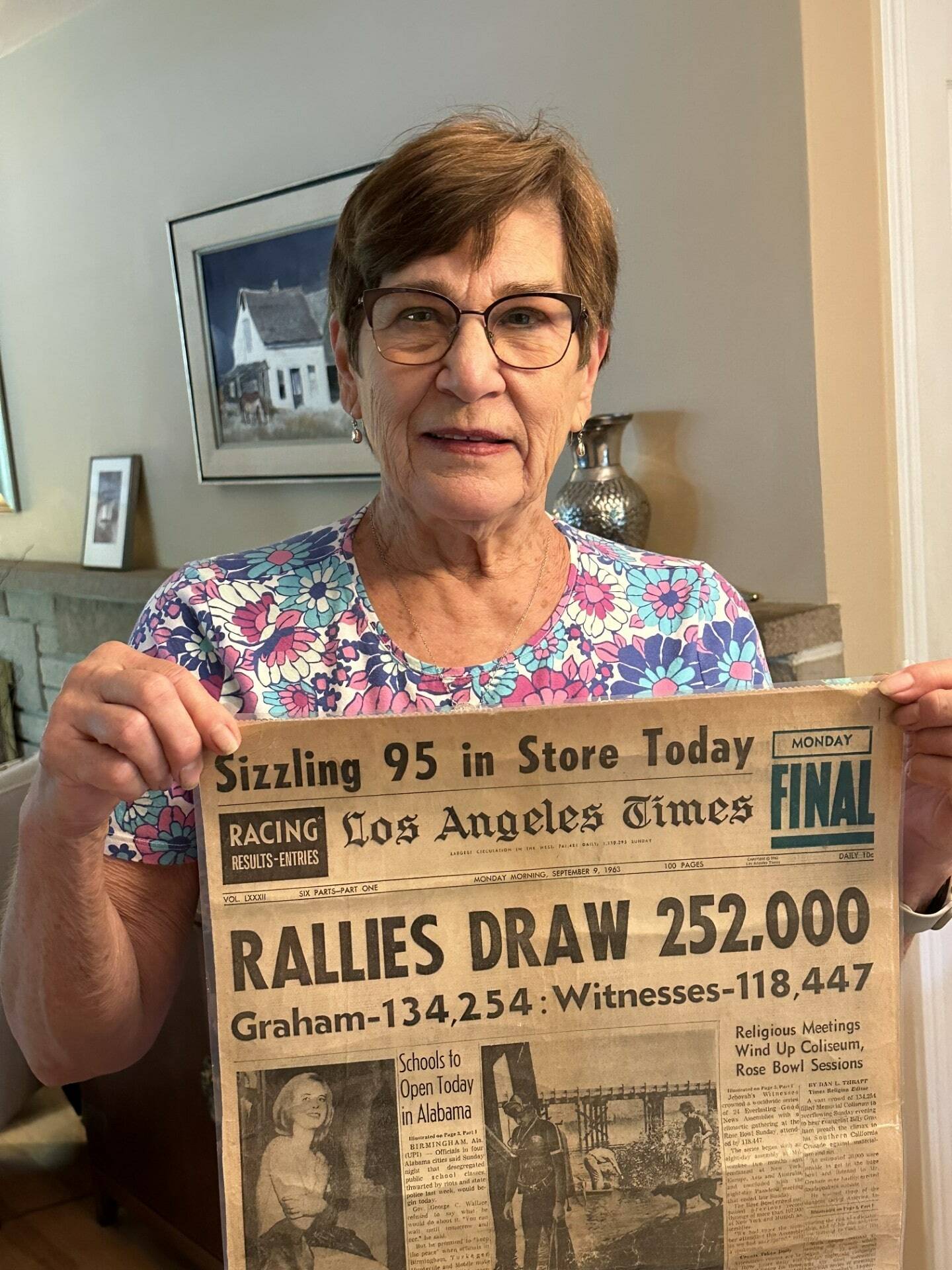Today marks the 75th anniversary of Billy Graham’s first major evangelistic crusade. It was held in Los Angeles. On Sept. 25, 1949, the 30-year-old blond evangelist stood on a platform in a circus tent that accommodated a waiting crowd of 6,000. It was the first night of a planned three-week event. What began relatively slowly within a few weeks became a much talked-about happening.
Newspaper magnate William Randolph Hearst, sensing the magnitude of the moment, issued a two-word directive to his various news outlets. The message simply instructed his editors to “Puff Graham.” The results of the telegram were mindboggling. The revival, at the corner of Washington and Hill streets, proved to be so popular, the crusade was extended five additional weeks and the tent was enlarged to seat 9,000. Billy Graham became an overnight phenomenon nationwide.
Before his storied career ended with his final crusade in New York in 2005, the North Carolina native had preached the Gospel to an estimated 250 million souls around the world. Graham would return to Los Angeles six more times following his initial “big tent revival” in 1949.
One of those return visits was in the summer of 1963. My neighbor and longtime friend, Linda Nicholl, remembers it well. Although she was in college at the time, she recalls reports from her folks. Linda’s dad, Dan Thrapp, was the religion editor for the Los Angeles Times for a quarter of a century. The Graham Crusades in the Southland were the heart of his beat whenever Billy came to town.
Recently Linda showed me the front page of the LA newspaper featuring her father’s recap of the three-week crusade in Memorial Coliseum. As I studied that treasured bit of family history, I pieced together the events of that momentous year nationally.
The same summer that 250,000 gathered on the Washington Mall to hear Martin Luther King, Jr. deliver his “I Have a Dream” speech, nearly a million gathered at the site of the 1932 Olympic Games to hear Billy Graham proclaim God’s dream for humanity. King and Graham, both Baptist ministers from the South, articulated a call to action. For MLK it was a call to peaceful protests. For Billy it was a call to protest sin and find peace with God by walking the aisle while the crusade choir sang “Just As I Am.”
At the last night of his three-week campaign, the popular evangelist drew a crowd of more than 134,000. 20,000 additional would-be attendees, who were unable to get seats, listened over a sound system outside the stadium.
Ironically (and tragically) two weeks after King’s speech and a week after Graham’s final sermon, four little Black girls were killed when a bomb was detonated at the 16th Street Baptist Church in Birmingham, Alabama. Both ministers’ dreams remained unrealized.
And just two months later Lee Harvey Oswald would gun down President John F. Kennedy in Dallas. The evidence of injustice, depravity and hatred replaced “good news” stories on the front pages of newspapers around the country. A nation hungry for words of hope and healing found themselves grieving and disenchanted.
Today, seventy-five years after William Randolph Hearst “puffed” Graham’s message, I’m convinced the late evangelist’s approach to getting the Word out would no longer draw huge crowds. It’s a different day requiring different methods. But I’m also convinced that both MLK’s dream and Billy’s theme need a fresh hearing. As in 1963, greed and pride often trump compassion and hope.
Racial injustice, political division, Biblical illiteracy, corporate corruption, moral bankruptcy and mass shootings all point to a three-letter-word that Dr. Graham used often. For him sin was the root cause of humanity’s ills. For Billy, sin was at the heart of people’s hearts.
Personally, I heard Billy Graham bare his soul at his Los Angeles Crusade in 1985. From his pulpit at second base in Angels Stadium, he pitched his invitation to acknowledge a need for God. Billy defined that three-letter word as the source of broken homes, broken marriages and a broken world. But he didn’t stop with the definition. Billy’s message included a solution. It was a four-letter word called love.
Guest columnist Greg Asimakoupoulos is a former chaplain at Covenant Living at the Shores in Mercer Island.


